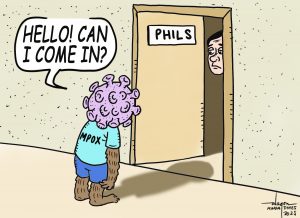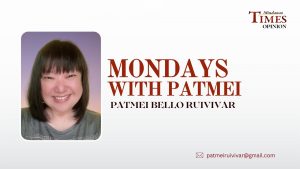JILL KAREN MAHUSAY & HONEY LYN TAGOD
FREEDOM of speech is a fundamental right enshrined in the 1987 Philippine Constitution, allowing individuals to express their opinions without fear of government repression. Article III, Section 4 of the 1987 Philippine Constitution states, “No law shall be passed abridging the freedom of speech, of expression, or of the press, or the right of the people peaceably to assemble and petition the government for redress of grievances.” However, this right is not absolute and comes with legal and ethical limitations to prevent abuse. At the same time, freedom of speech promotes democracy and accountability but raises concerns about hate speech, defamation, and national security. The balance between protecting free expression and imposing necessary restrictions remains a contentious issue in the Philippines. This issue is vital because it directly impacts how we communicate, access information, and participate in shaping our society. It affects everything from political discourse to online interactions, making it essential for every citizen to understand the delicate balance between free expression and limitations. While the Philippine Constitution guarantees freedom of speech, this essay will argue that practical limitations are necessary to protect against abuses like hate speech and defamation, allowing for the responsible exercise of this right within a democratic framework.
Freedom of speech constitutes a fundamental principle of democratic societies, facilitating the open exchange of ideas and opinions that are indispensable for ensuring governmental accountability and promoting an informed citizenry. Indeed, the capacity to articulate diverse and even contrary viewpoints represents a vital characteristic of any democracy, as it enables robust debate, facilitates the careful consideration of various options, and mitigates the potential for significant errors in governance. Democratic societies are built upon the fundamental principle of freedom of speech. This freedom enables the open exchange of ideas and opinions, which is vital for maintaining government accountability and promoting an informed population.
The Philippines has had four constitutions since 1898, and throughout this constitutional evolution, freedom of expression has been a consistent right rooted in the Filipino pursuit of freedom and democracy. The current 1987 Constitution offers the most excellent protection for these rights. In St. Anthony College of Roxas City, Inc. v. COMELEC, the Court held that Comelec cannot remove privately owned campaign materials on private property. The Court stated that RA 9006 only allows Comelec to regulate campaign materials of candidates and parties, not private political speech. Thus, Comelec’s ‘Oplan Baklas’ applies to candidates and parties, but not private individuals. The Court stressed the importance of protecting political speech, a core democratic liberty, and emphasized that even well-intentioned actions cannot justify violating constitutional rights. While upholding freedom of speech, the Philippine Constitution, through laws and jurisprudence, implicitly limits this freedom to prohibit hate speech. This prohibition addresses expressions that incite violence, discrimination, or harm based on race, religion, ethnicity, gender, sexual orientation, or other characteristics.
Hate speech is a complex concept to define. It includes speech that is insulting, belittling, or aggressive towards the national, racial, religious, or ethnic identity of individuals or groups. Hate speech conflicts between two critical values: freedom of expression and the right to dignity and respect for others. Over time, particularly considering advancements in media and communication technologies, the concept of ‘freedom of expression’ has revealed a darker side, often used to discriminate against and insult specific social groups, their members, or individuals. The accessibility, affordability, and anonymity of social media have made it the primary venue for public discourse. The anonymity of online platforms further enables individuals to express extreme views without accountability, making it harder to regulate and prevent harm.
As noted by a study from 2022, researchers have at least two shared beliefs focused on national security secrecy: first, the government must maintain certain secrets to safeguard national security, and second, an informed citizenry is essential for a thriving democracy. However, the more one moves away from these general principles, the harder it becomes to reach a consensus. The right to freedom of expression is a fundamental right protected by various international and regional human rights treaties, including Article 19 of the International Covenant on Civil and Political Rights (ICCPR) and Article 10 of the European Convention on Human Rights. While this right should not be restricted on a discriminatory basis, it can be curtailed under strict conditions to protect specific interests, such as national security. The state is responsible for proving that any limitation meets these conditions, commonly known as the three-part test.
To combat disinformation, particularly on sensitive national issues, media literacy is crucial for ensuring public access to accurate information for informed decision-making. According to a study, the importance of verifying information before sharing it online is advocated for self-regulation and ethical journalism. Researchers emphasized mainstream media’s role in upholding journalistic integrity through adherence to strict verification and editorial standards, focusing on accuracy, balance, and clarity. Despite the recognition of free speech in online spaces, the lack of verification on social media platforms can easily mislead and further divide the public.
All in all, the fundamental democratic right of free speech, while essential, carries inherent dangers when exercised without restraint, potentially fostering the spread of hate speech, damaging reputations through defamation, and even jeopardizing national security. The challenge lies in ensuring that necessary restrictions do not undermine democratic values but rather protect individuals and society from harm. In an era where social media amplifies both free expression and misinformation, it is crucial to promote responsible speech, ethical journalism, and media literacy. The power of free speech comes with a duty to use it wisely—not as a tool for division or harm, but as a force for truth, accountability, and meaningful discourse. Striking this balance will determine how freedom of expression shapes the future of Philippine democracy.
———————————————————————————————
Jill Karen Mahusay and Honey Lyn Tagod are AB Political Science students at the University of Cebu-Main Campus. The piece is part of their requirements for the Constitutional Law subject.




